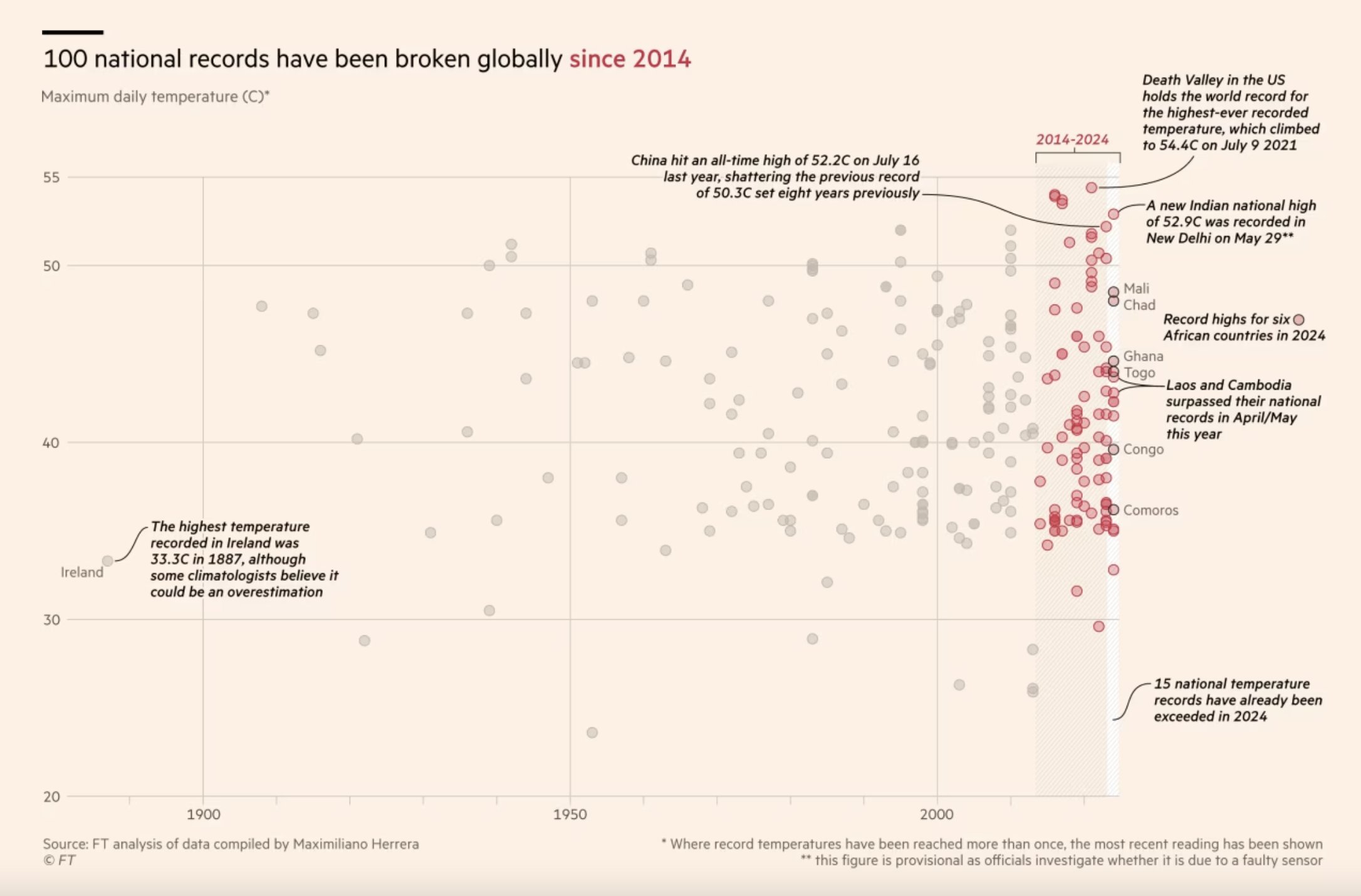On May 29 New Delhi was 52.9 degrees Celsius (127.2 F), only 1.5 degrees less than the world record from Death Valley.
Records are being set all over the world:

And this is in May, which is, in a way, a good thing, since humidity is relatively low and the wet-bulb temperature wouldn’t have been as high as it would be, in say, August. At a humidity of 66%, people would have been dropping like flies.


I have noted, for many years now, that I do not expect India to survive and that I expect, along the way, large famines and death tolls of at least two to three hundred million.
Temperature is only part of it, but it’s not going to be a small deal. Most of India’s groundwater is contaminated, and while some states are fine, many are over-using groundwater to the extant that farmer suicides because wells drying up are a regular event. As the Himalayas get hotter and glaciers dry up, rivers will first swell then either die or have far less water in them. (The Monsoons, at least, will be stronger in most areas of India.)
The combination of less water, more heat, extreme weather events and unreliable planting seasons means that at some point India’s harvest is going to fail in a big way. If this was a “India only” problem, well, the rest of the world could get India thru, but it isn’t, India’s just one of the most vulnerable countries.
In most famines, there’s enough food, it just isn’t distributed to people who need it, but we are going to have famines where there just, genuinely, isn’t enough food, period and India is very vulnerable to this.
(This is, as an aside, one of the main reasons for the China/Russia alliance. China has great difficulty feeding itself, and Russia has massive food surpluses. China wants and needs to be first in line when food becomes scarce.)
Now there are potential solutions to a lot of this, but India, though ostensibly rich in GDP terms, isn’t rich on the ground and has terrible state capacity. China will be able to implement effective public policy for quite some time. India won’t.
Finally, and I want to return to this, the fact that population replacement rates are falling around the world is GOOD, not bad. We have too many people and are in classic population overshoot. Increasing population is the idiot’s way of increasing GDP. (Canada and Britain, take note.)

So one good piece of news for India is that population is now at replacement and in many states has fallen below replacement. But, it’s a little too late, I fear.
You get what you support. If you like my writing, please SUBSCRIBE OR DONATE
